New Research Frontiers in Law and Science: from the deep Sea to rising Sea levels
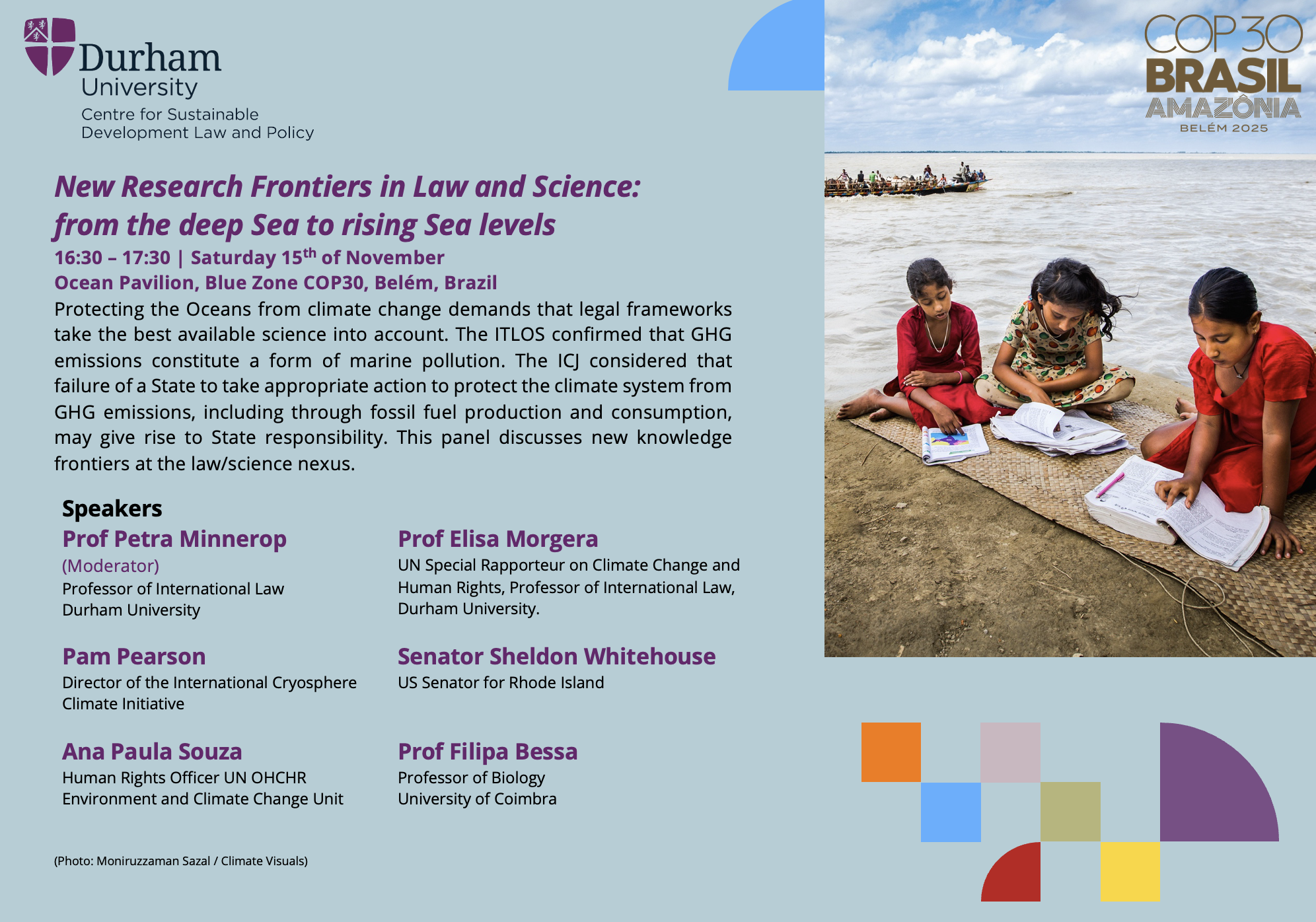
Durham University hosted an event at the Ocean Pavilion at COP30: 'New Research Frontiers in Law and Science: from the deep Sea to rising Sea levels'.
The Ocean Pavilion at COP30 Brazil made it possible to engage with four amazing panellists: Pam Pearson, Filipa Bessa, Elisa Morgera, and Ana Paula De Souza. The panel discussion was followed by closing remarks from US Senator Sheldon Whitehouse. The amazing audience in the room and outside of it shaped the discussions on the theme of
New research frontiers in Law and Science: from the deep Sea to rising Sea levels. Interdisciplinarity has truly arrived at the level of UN Climate Change negotiations.
I invited the panel to reflect on three questions:
- How can stringent due diligence standards for NDCs be determined and operationalised from a science/law perspective?
- How should we define "appropriate action" from a science perspective, to protect the climate system from GHG emissions?
- How can new thresholds be identified for GHG emissions - and when are they
Key takeaways from the discussions are:
There is enough science available, including from the IPCC, to define economy-wide NDC targets that are aligned with the long-term temperature goal of the Paris Agreement of 1.5°C - the new consensus target.
There is one Paris Agreement long-term temperature goal – not goals – and even that will lead to several meters of sea-level rise over the coming centuries. References that add the plural 's' in negotiating texts must be corrected.
Countries that articulate capacity limits to include science in NDCs should receive the support they need in monitoring and reviewing their targets and progress. Providing this support flows from the obligation of international cooperation under international law.
Not all States measure the health impacts of extreme weather events, and it is in that respect that more data from climate science, attribution science, is needed.
Sea level rise threatens not only livelihoods in coastal areas, but it will also lead to the complete loss of States.
A holistic and human rights approach is necessary to wean the international community from fossil fuel dependency, to move away from the many different ways in which the production and the consumption of fossil fuels impact our health.
Marine biologists, climate scientists and lawyers will work together to define what stringent due diligence standards are in relation to obligations under the UNFCCC, the UNCLOS, as referred to by the International Tribunal for the Law of the Sea/Tribunal international du droit de la mer and the Paris Agreement.
Taking appropriate action to protect the climate system from GHG emissions means that States must regulate the fossil fuel industry by setting legal targets to transition away from fossil fuels.
Pam Pearson:
"Congratulations on this excellent event! It was a privilege to be on such a panel; many thanks"
Sara Anne Comel's comment after the Ocean Pavilion Event:
"We look forward to welcoming Professor Minnerop. The University Vice Rector Cécile Sabourault, who is also a Professor of Marine Biology, and Professor Jean-Christophe Martin the Director of the Institute for Peace and Development attended the panel she organized at the Ocean Pavilion. They found her contribution truly excellent and are very much looking forward to meeting her."
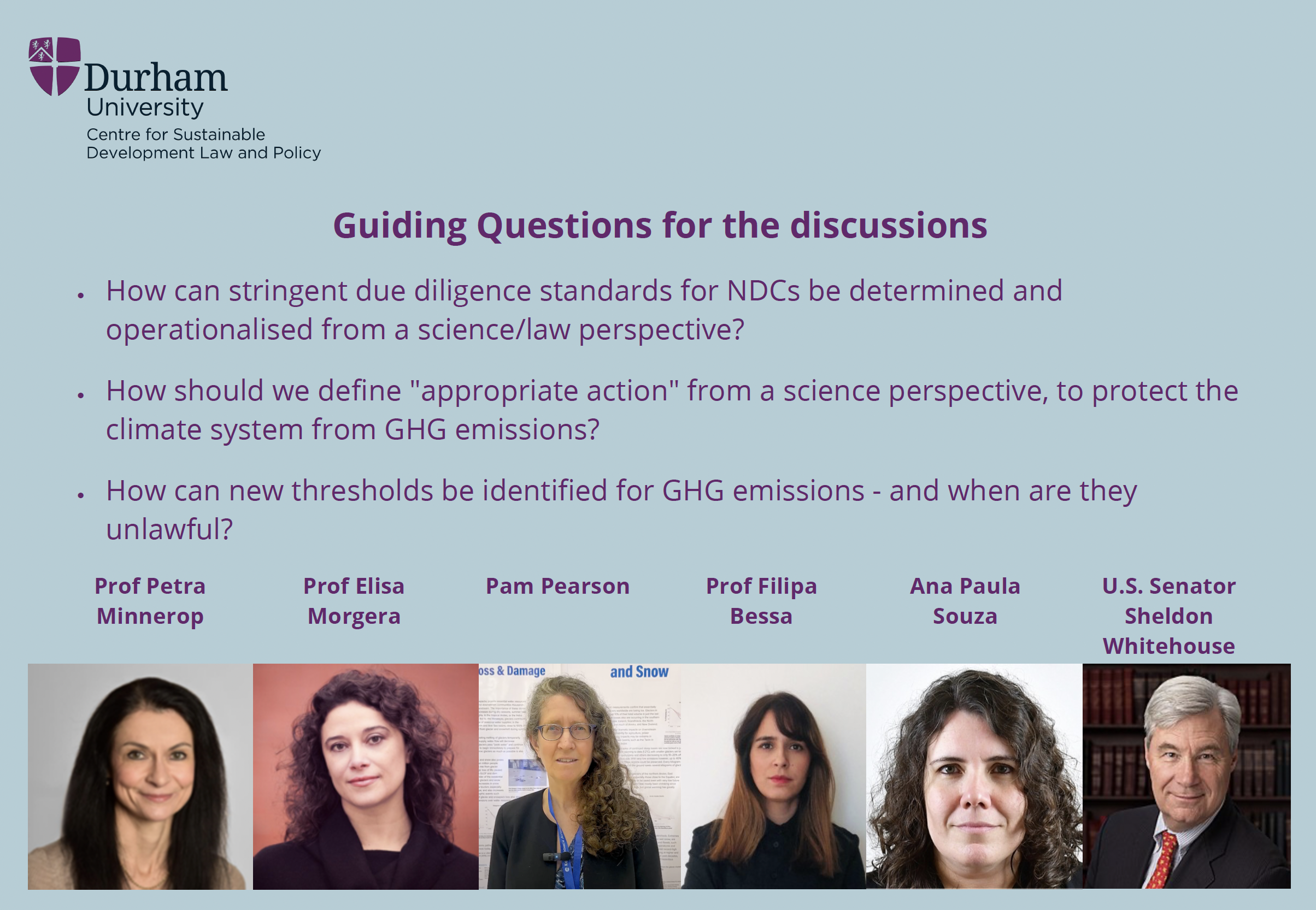
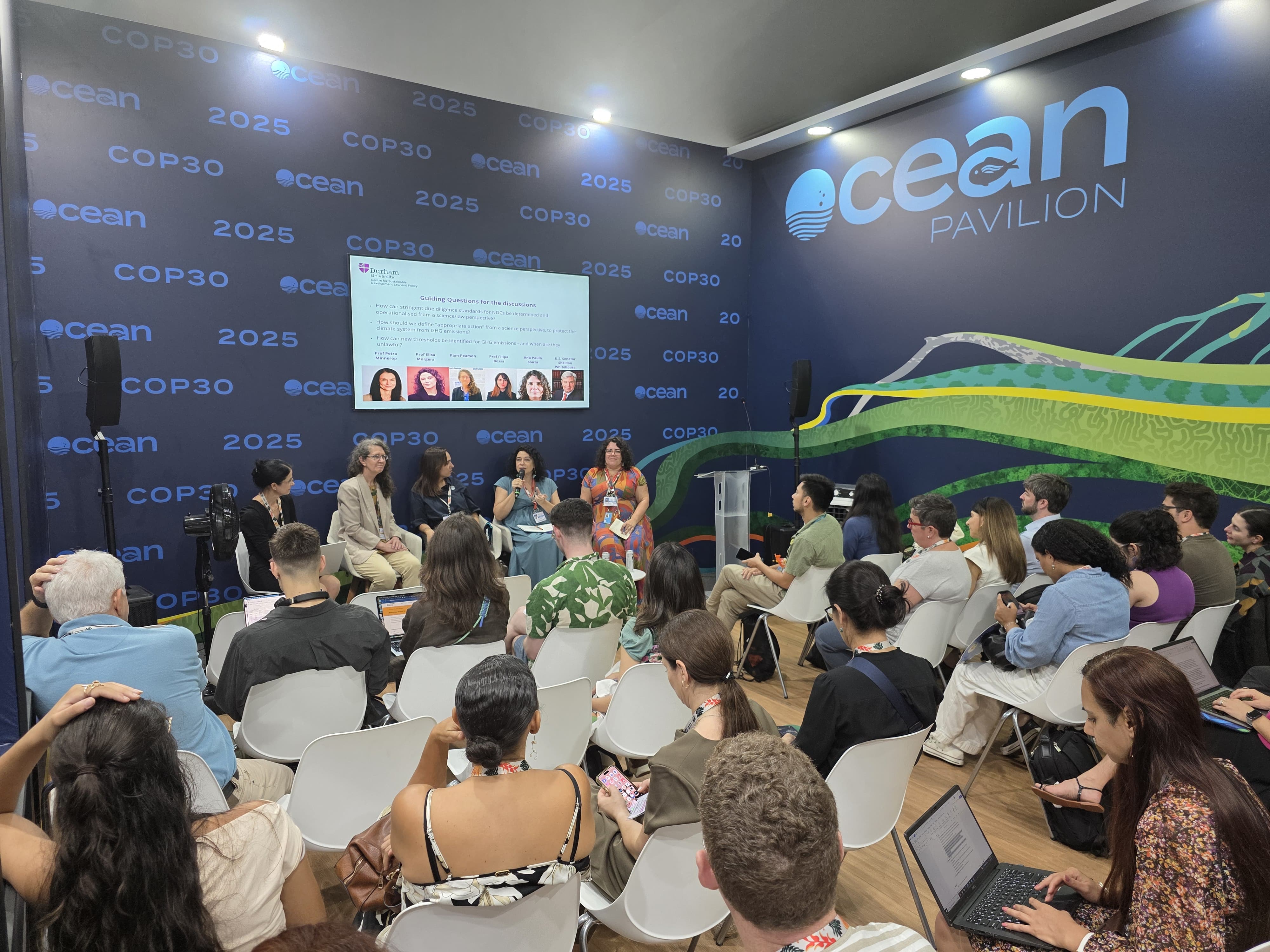
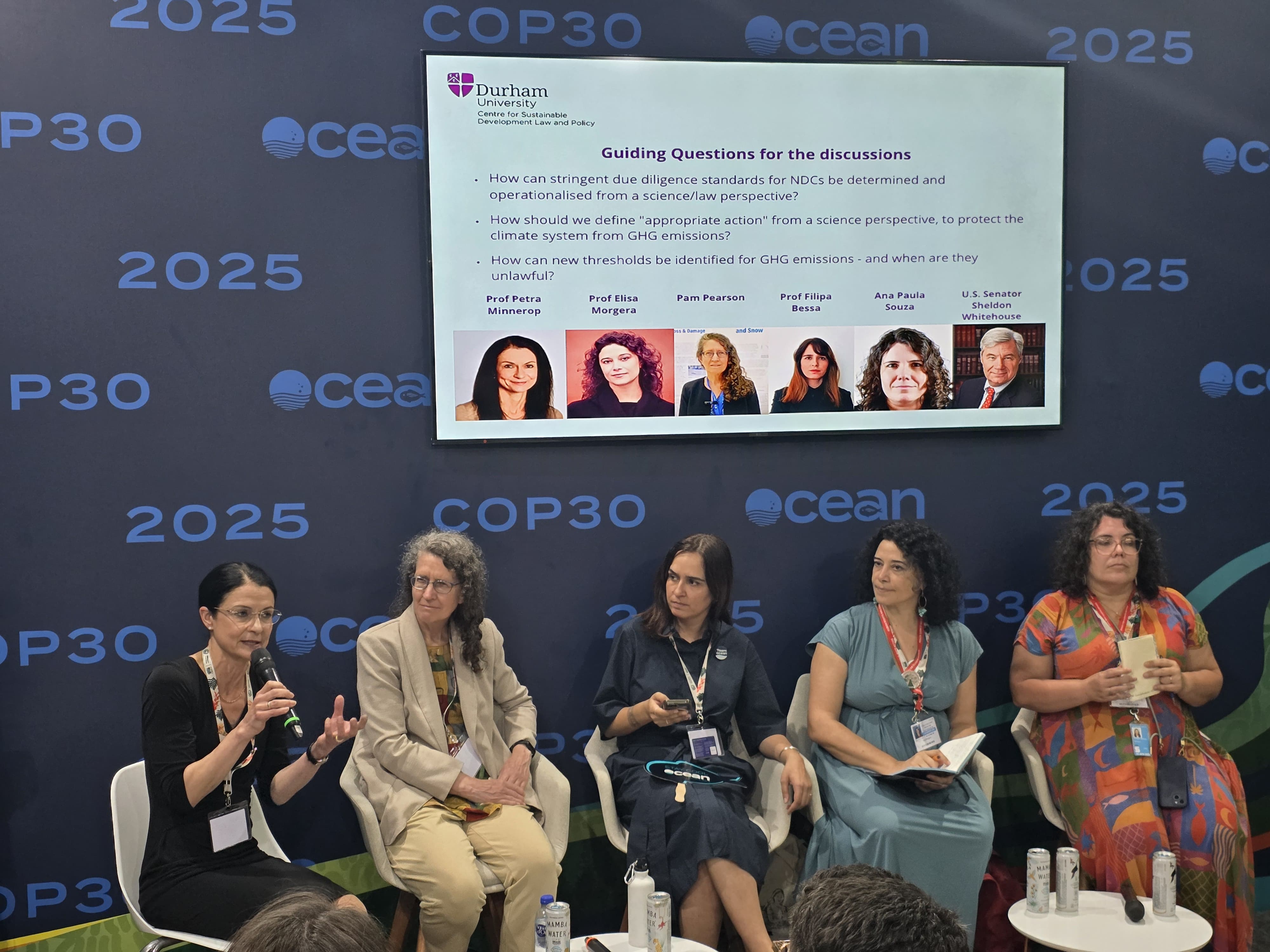
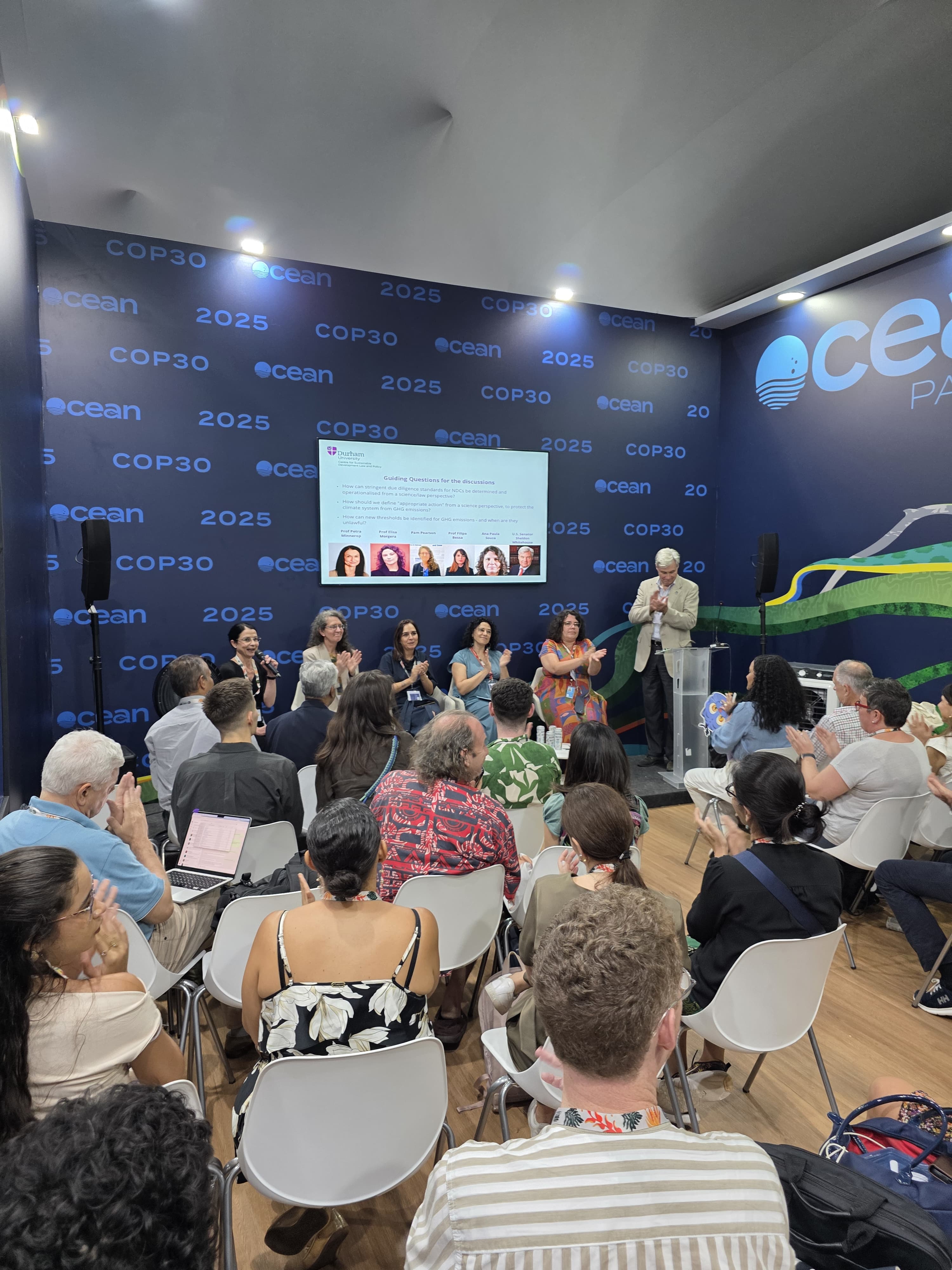



/prod01/prodbucket01/media/durham-university/attractions-/botanic-gardens-/79619-1920X290.jpg)